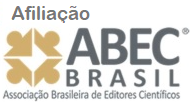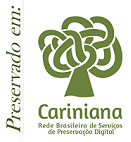ELEMENTOS DE PESQUISA EMPÍRICA E DIREITO
DA BLINDAGEM METODOLÓGICA ATÉ O MARCO TEÓRICO, PASSANDO PELA VERDADE E A NEUTRALIDADE CIENTÍFICA
Palavras-chave:
pesquisa empírica; demarcação da ciência; blindagem metodológica.Resumo
Da proposta de distinguir na metodologia da pesquisa o método, das técnicas e da análise de dados, proponho que há mecanismos próprios do saber científico que funcionam como redutores do risco à rejeição do que se comunica numa pesquisa científica. Trata-se das blindagens metodológicas, como são os registros que lastreiam de cientificidade o que se afirma numa pesquisa científica. Essas blindagens devem constar na exposição da pesquisa, podem constar na introdução ou ser um capítulo específico. O importante é que as afirmações, os argumentos da pesquisa, contem com lastros de cientificidade. Há blindagens referentes ao método, às técnicas e à análise dos dados. Estas reflexões estão baseadas em literatura e situações vivenciadas na experiência profissional do autor. Nosso roteiro foi apresentar elementos da teoria do conhecimento para lidar com a questão da definição. Em seguida, exploramos o tema da demarcação da ciência, para, ao fim, apresentar nossas sugestões de blindagens metodológicas. A conclusão é que essas blindagens são indispensáveis para a/o observadora/o deterem um sentimento de segurança quanto à pesquisa realizada.
Referências
ARISTÓTELES. Metafísica. Tradução bilingue Giovanni Reale. São Paulo: Loyola, 2015.
BUNGE, Mario. Matéria e mente. São Paulo: Perspectiva, 2017.
CORSI, Giancarlo. Semantica scentifica e comunicazione sociale. In: Baraldi, Claudio; Corsi, Giancarlo; Esposito, Elena. Semantica e comunicazione. Bologna: Club, 1987. p. 75-111.
DIETZ, Thomas; KALOF, Linda. Introdução à estatística social. Rio de janeiro: LCT, 2015.
DOMINGUES, Ivan. O grau zero do conhecimento: o problema da fundamentação das ciências humanas. São Paulo: Loyola, 1991.
FEYEHABEND, Paul. Contra o método. Tradução Cezar Augusto Mortari. São Paulo: EdUnesp, [1975] 2011.
HUME, David. Investigações sobre o entendimento humano e sobre os princípios da moral. São Paulo: UNESP, 2004[1748].
KANT, Immanuel. Prolegômenos a toda metafísica futura que queria aparentar-se como ciência. Lisboa: Edições 70, [1783] 1998.
KUHN, Thomas. A estrutura das revoluções científicas. Tradução Beatriz Vianna Boeira e Nelson Boeira. São Paulo: Perspectiva, 2000.
KUHN, Thomas. A tensão essencial. Tradução: Rui Pacheco. Lisboa: Edições 70, 2009.
KUHN, Thomas. O caminho desde a estrutura. Tradução: Cezar A. Mortari. São Paulo: UdUNESP, 2017.
LAKATOS, Imre. Falsificação e metodologia dos programas de investigação científica. Lisboa: Edições 70, 1999.
LUHMANN, Niklas. Sistemas Sociais. Esboço de uma teoria geral. Petrópolis: Vozes, 2016.
LUHMANN, Niklas. La ciencia de la sociedad. México/Barcelona: Universidad Iberoamericana/Herder, 1996.
LUHMANN, Niklas. La sociedad de la sociedad. México/Barcelona: Universidad Iberoamericana/Herder, 2007.
LUHMANN, Niklas. Organización y decisión. México/Barcelona: Universidad Iberoamericana/Herder, 2010.
MARCONDES FILHO, Ciro. O escavador de silêncio. Formas de construir e de desconstruir sentidos na comunicação. Nova teoria da comunicação II. São Paulo: Paulus, 2004.
MARCUSCHI, Luiz Antônio. Processo de compreensão. Produção textual, análise de gêneros e compreensão. São Paulo: Parábola, 2008.
MATURANA, Humberto; VARELA, Francisco. El arbor del conocimiento: las bases biológicas del conocimiento humano. Santiago de Chile: EdUniversitaria, 1984.
MERTON, Robert. The sociology of science. Theoretical and empirical investigations. London/Chicago: University of Chicago, 1973.
NEVES, Marcelo. Entre subintegração e sobreintegração: a cidadania inexistente. In: MOITA, Edvaldo (org.). A cidadania inexistente. São Paulo: Martins Fontes, 2022. p. 1-39.
OLIVEIRA, Luciano. Sua excelência o comissário. Rio de Janeiro: Letra Legal, 2004.
OLIVEIRA, Luciano. Os excluídos existem? Notas sobre a elaboração de um novo conceito. Revista Brasileira de Ciências Sociais, v. 12, n. 33, p.1-11, fev. 1997. Também, disponível em: http://anpocs.com/images/stories/RBCS/33/rbcs33_04.pdf
PERERIA DE ANDRADE, Vera Regina. Dogmática jurídica. Escorço de sua configuração e identidade. Rio de janeiro: Livraria do Advogado, 2003.
PLATÃO. Sofista. Tradução José Cavalcanti de Souza, Jorge Peleikat e João Cruz Costa. São Paulo: Nova Cultural, 1972.
POPPER, Karl. Conjecturas e refutações. Brasília: UnB, 1972.
POPPER, Karl. Conhecimento objetivo. Belo Horizonte: Itatiaia, São Paulo: EdUSP, 1973.
POPPER, Karl. Os dois fundamentos da teoria do conhecimento. São Paulo: Unesp, 2013.
RODRIGO RODRIGUEZ, José; PÜSCHEL, Flavia Portella; MACHADO, Marta Rodriguez de Assis. Dogmática é conflito: uma visão crítica da racionalidade jurídica. São Paulo: Saraiva, 2012.
PERERIA DE ANDRADE, Vera Regina. Dogmática jurídica. Escorço de sua configuração e identidade. Rio de janeiro: Livraria do Advogado, 2003.
RORTY, Richard. Philosophy and the mirror of nature. Princeton/New Jersey: Princeton University, 1979.
RORTY, Richard. Verdade e progresso. São Paulo: Manole, 2005.
SOKAL, Alan; BRICMONT, Jean. Imposturas intelectuais. Tradução: Max Altmam. Rio de Janeiro/São Paulo: Record, 2010.
SEVERO ROCHA, Leonel. Epistemologia do direito: revisitando as três matrizes jurídicas. RECHTD, Revista de Estudos Constitucionais, Hermenêutica e Teoria do Direito, v. 5, n.2, p. 141-149, jul./dez. 2013.
SOUTO, Cláudio. O que é pensar sociologicamente. São Paulo: EPU, 1987.
SOUTO, Cláudio. Sobre a pesquisa científica em direito. Revista Brasileira de Sociologia do Direito, ABraSD, v. 2, n. 2, p. 38-49, jul./dez. 2014. Disponível em: http://revista.abrasd.com.br/index.php/rbsd/article/view/35/45
STAMFORD DA SILVA, Artur. Decisão jurídica na comunicativação. São Paulo: Almedina, 2021.
STAMFORD DA SILVA, Artur. Comunicativação. Revista Direito e Humanidades, v. 1, n. 1, p. 128-260, 2024.
WARAT, Luis Alberto. Saber crítico e senso comum teórico dos juristas. Sequência, Santa Catarina, v. 3, n. 05, p. 48-57, 1982. Disponível em: https://periodicos.ufsc.br/index.php/sequencia/article/view/17121/15692.
Downloads
Publicado
Edição
Seção
Licença
Copyright (c) 2024 Artur Stamford da Silva

Este trabalho está licenciado sob uma licença Creative Commons Attribution 4.0 International License.
Os direitos autorais dos artigos publicados na Revista Direito Mackenzie pertencem aos autores, que concedem à Universidade Presbiteriana Mackenzie os direitos de publicação do conteúdo, sendo que a cessão passa a valer a partir da submissão do artigo, ou trabalho em forma similar, ao sistema eletrônico de publicações institucionais. A revista se reserva o direito de efetuar, nos originais, alterações de ordem normativa, ortográfica e gramatical, com vistas a manter o padrão culto da língua, respeitando, porém, o estilo dos autores. O conteúdo relatado e as opiniões emitidas pelos autores dos artigos são de sua exclusiva responsabilidade.











